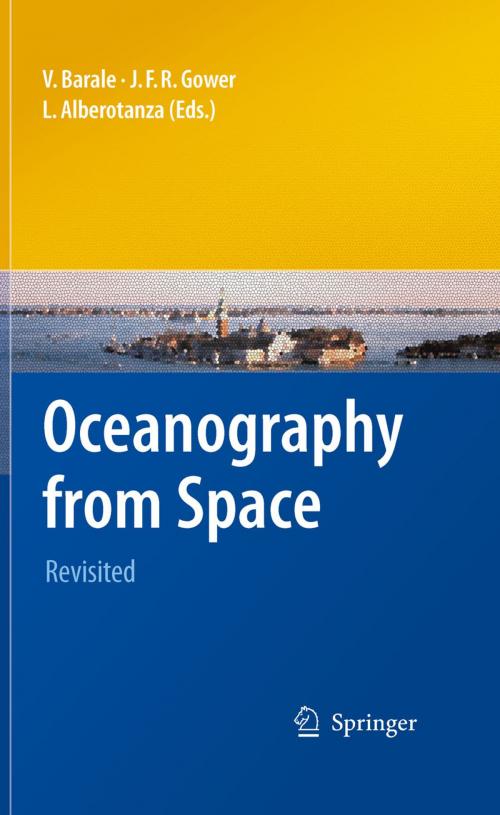Oceanography from Space
Revisited
Nonfiction, Science & Nature, Technology, Remote Sensing, Science, Earth Sciences, Oceanography| Author: | ISBN: | 9789048186815 | |
| Publisher: | Springer Netherlands | Publication: | April 26, 2010 |
| Imprint: | Springer | Language: | English |
| Author: | |
| ISBN: | 9789048186815 |
| Publisher: | Springer Netherlands |
| Publication: | April 26, 2010 |
| Imprint: | Springer |
| Language: | English |
To all those sailors / Who dreamed before us / Of another way to sail the oceans. The dedication of this Volume is meant to recall, and honour, the bold pioneers of ocean exploration, ancient as well as modern. As a marine scientist, dealing with the oceans through the complex tools, ?lters and mechanisms of contemporary research, I have always wondered what it was like, in centuries past, to look at that vast ho- zon with the naked eye, not knowing what was ahead, and yet to sail on. I have tried to imagine what ancient sailors felt, when “the unknown swirls around and engulfs the mind”, as a forgotten author simply described the brave, perhaps reckless, act of facing such a hostile, menacing and yet fascinating adventure. Innovation has always been the key element, I think, for their success: another way, a better way, a more effective, safer and worthier way was the proper answer to the challenge. The map of our world has been changed time and again, from the geographical as well as the social, economic and scienti?c points of view, by the new discoveries of those sailors. One of the positive qualities of human beings is without doubt the inborn desire to expand their horizons, to see what lies beyond, to learn and understand.
To all those sailors / Who dreamed before us / Of another way to sail the oceans. The dedication of this Volume is meant to recall, and honour, the bold pioneers of ocean exploration, ancient as well as modern. As a marine scientist, dealing with the oceans through the complex tools, ?lters and mechanisms of contemporary research, I have always wondered what it was like, in centuries past, to look at that vast ho- zon with the naked eye, not knowing what was ahead, and yet to sail on. I have tried to imagine what ancient sailors felt, when “the unknown swirls around and engulfs the mind”, as a forgotten author simply described the brave, perhaps reckless, act of facing such a hostile, menacing and yet fascinating adventure. Innovation has always been the key element, I think, for their success: another way, a better way, a more effective, safer and worthier way was the proper answer to the challenge. The map of our world has been changed time and again, from the geographical as well as the social, economic and scienti?c points of view, by the new discoveries of those sailors. One of the positive qualities of human beings is without doubt the inborn desire to expand their horizons, to see what lies beyond, to learn and understand.















